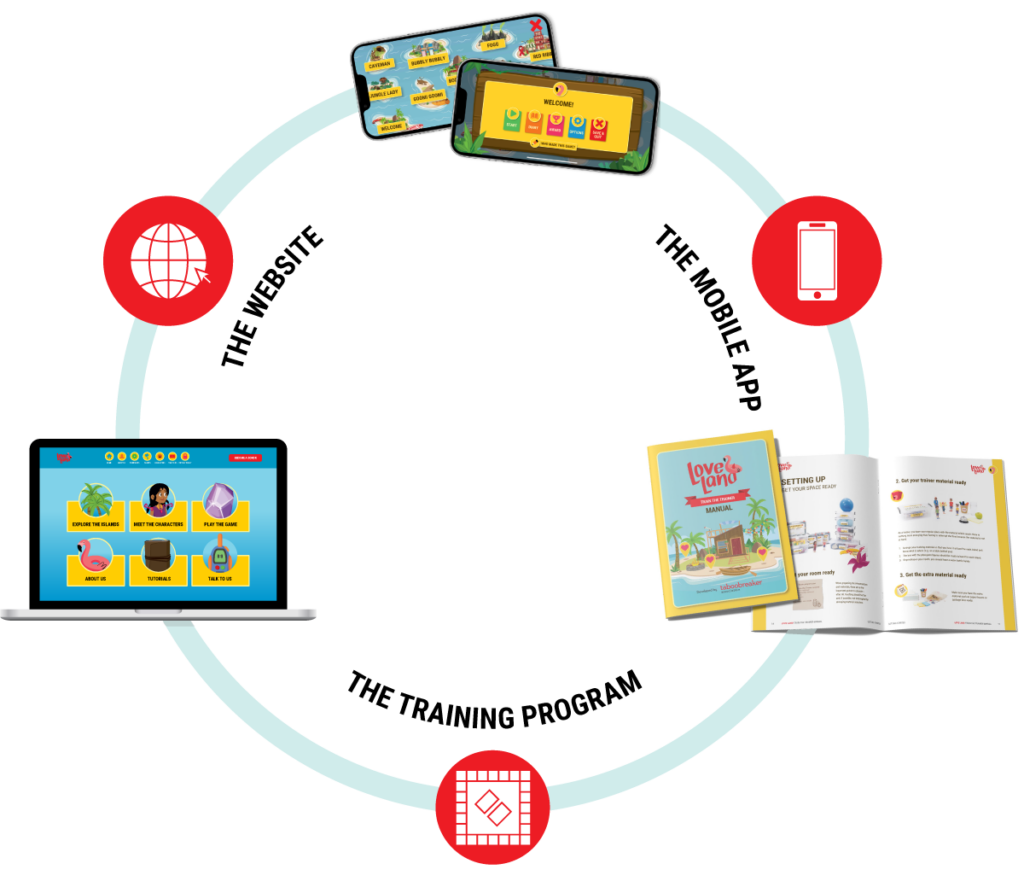

Love Land is a multi-channel program to make sexual and reproductive health (SRH) education globally accessible.
We offer support that allows young people to safely transition into adulthood.
Global Numbers
for too many young people on our planet.
People 12-24 years old
Title
132 230
HIV infections
per year
Title
66 85
infections per day
Title
356 453
pregnancies per year
1 in 10 boys
2 in 10 girls
before the age of 18
Source: WHO 2017
Why Love Land?
This program is designed to help teachers, youth and health experts, and other interested persons, to convey the topics of sexual and reproductive health to young people in a variety of methods and content.
The program runs over several days and integrates the use of Love Land – the App, the board game, and the website.
The magic of Love Land - The App
- It is free
- It is a gamified learning world
- It is motivation through gamification
- It makes the gamer a hero
- It is extendable
- It is a safe learning environment
- It is based on Unesco Guidelines
and serves the SDG’s - It is more than an app
Love Land is a multi-channel program
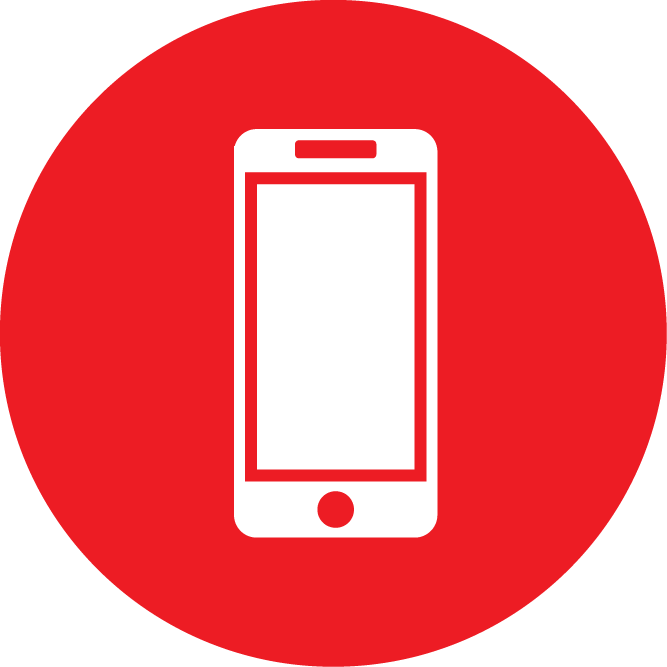
The Mobile App
individual learning
The App is a safe learning environment to foster knowledge, communication and sound decision-making skills.
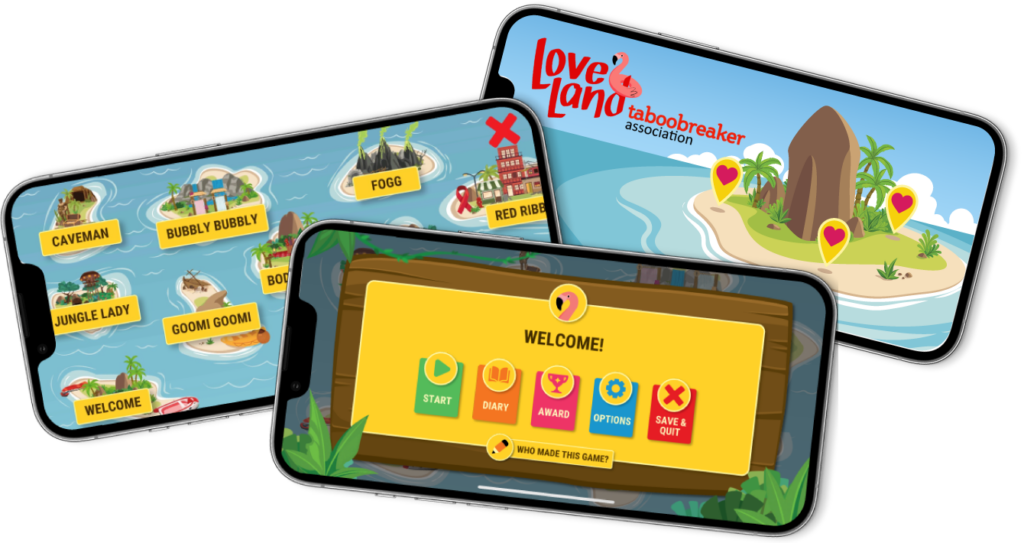
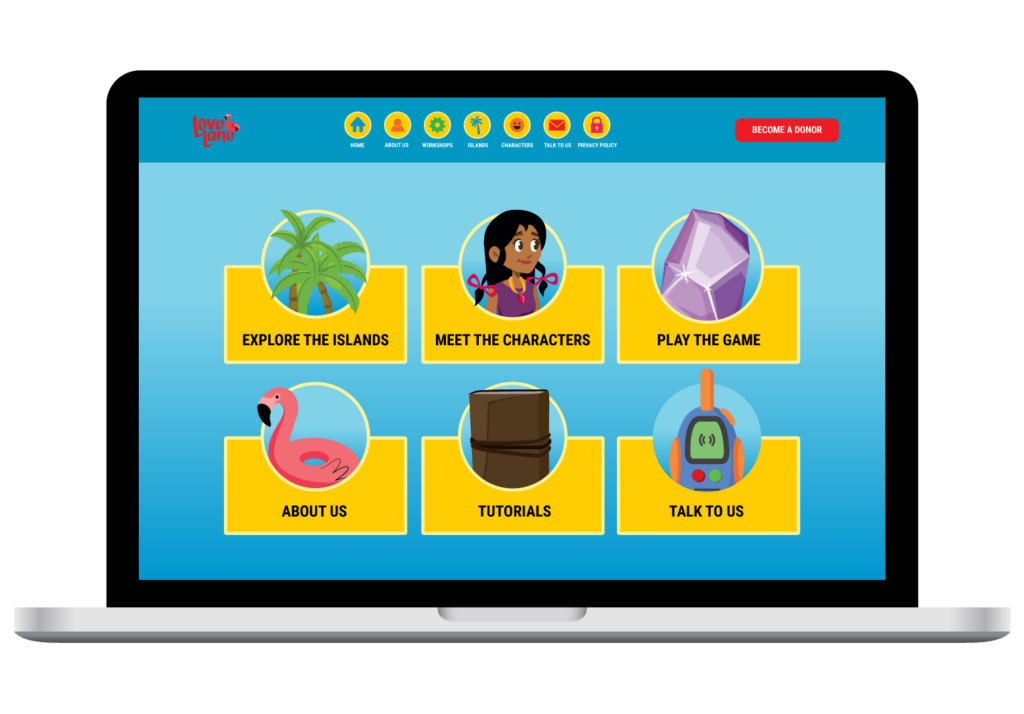
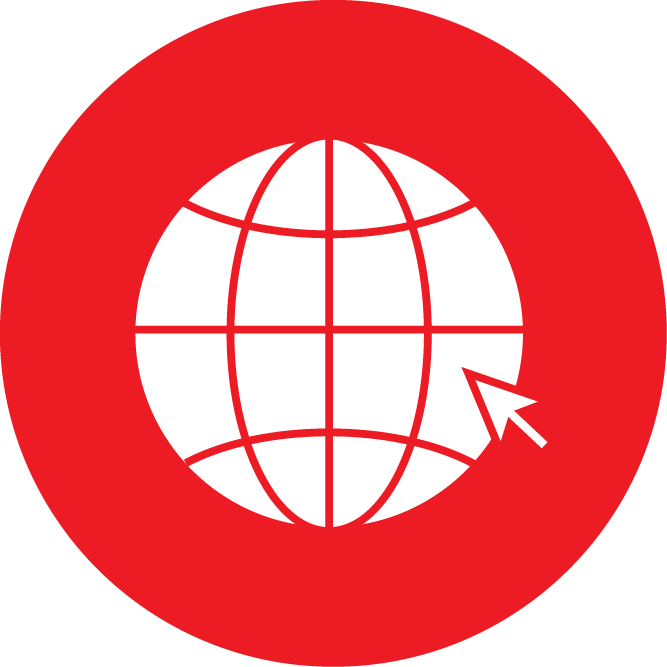
The Website
Extended Learning
The Website is linked with the App and provides further thematic sexual health and safety content in an appealing way supported by tutorial videos.
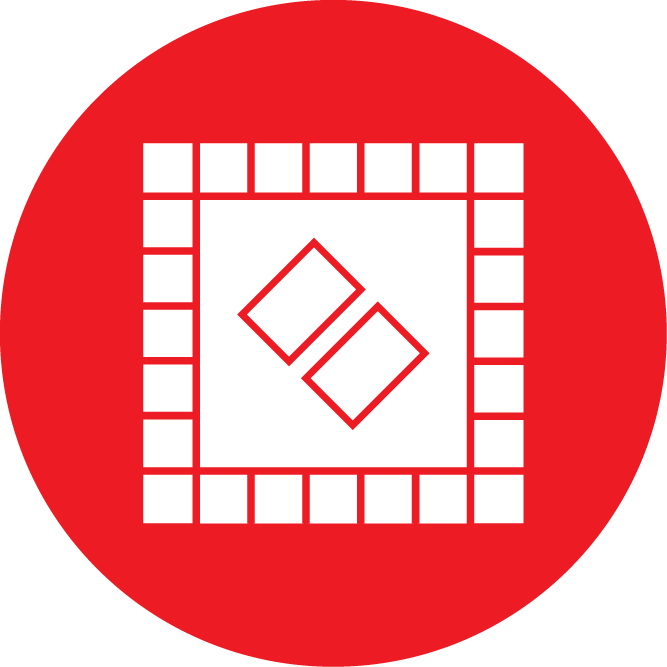
Train-the-Trainer
Get a box and training and much more
The Board Game is based on the App and supports the Train-the-Trainer program in teaching and integrating the app and website.
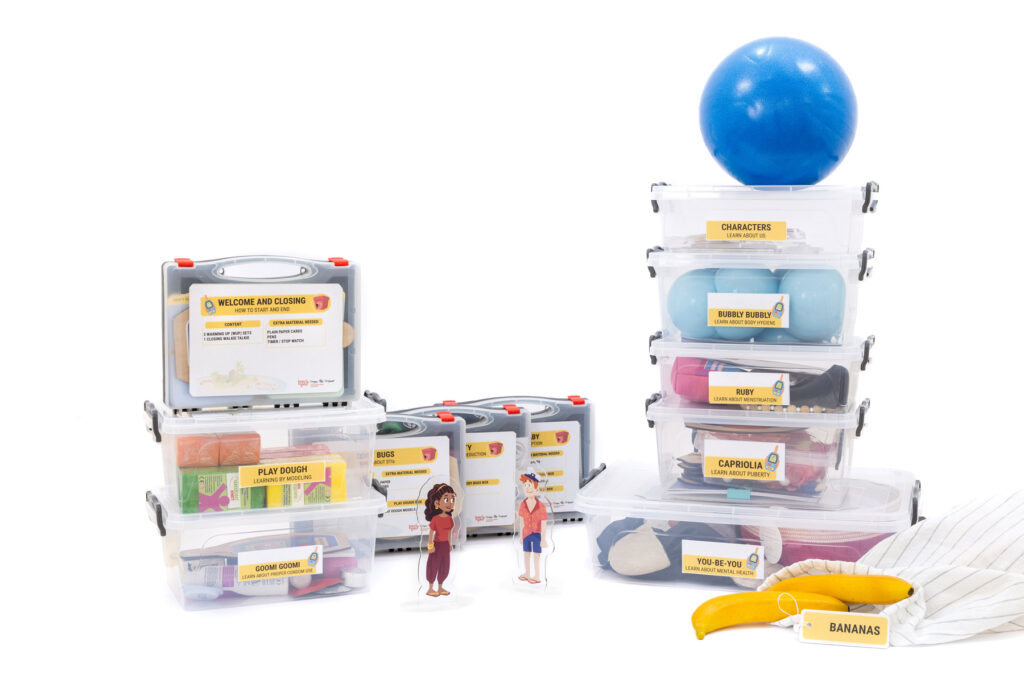









OUR JOURNEY
Love Land The App Milestones
reached as Love Land the App continues to expand.

Setup of Train the Trainer program with the updated and redesigned board game and materials.

Launch of Version 3.0, with 10 Islands, 3 Languages (E, F, A) with professional voice-overs, including the Fogg Island (Final Test).

Symposium with Prof. Dr. Cathy Ward at UCT for Digital Health Week by Transform Health.

Appointment of Lee-Ann van Rooi as Director of Taboobreaker SA NPC.

Launch Version 2.0 with Level 1 (Knowledge) with Swiss TV presence and report.

Pro-Bono support from Costello Medical to develop an SROI (Social Return on Investment) and CEM (Cost Effectiveness) Models.

Testing Partnership for App with the Zurich University of the Arts (ZHdK), Switzerland.

Launch of Version 1.0 with 7 Islands, 3 Languages (English, French, Afrikaans) and now available for Android and iOS.

Donation from a well-known Swiss Foundation for a Language (French) and an Island.

Cooperation with UCT and Oxford University for Implementation Research.

Official Partner of the International Transform Health Initiative.

Registration of Taboobreaker SA NPC (non-for-profit) Company in Cape Town.

The new website loveland.game is online, complementing the App.

Beta Version with 5 Islands in English available for Android (Google Play).

Dr. Kate Molesworth, an International Health Expert, joined as Scientific Advisory Board Member.

Testing of MVP with Young Bafana (RSA) & in Zimbabwe.

Donations received from Dorave Foundation, L. & A. Hotz-Sprenger as well as from Private Donators.

Game Design Document established with Loud Rabbits for Minimal Viable Product (MVP).

Concept of Love Land App based on UNESCO Guidelines and contributing to the Sustainable Development Goals (SDGs).
Frequently asked Questions
The United Nations Educational, Scientific and Cultural Organization (UNESCO), in recognition of the urgent global need to educate young people with clear, accurate information about sexuality, has published its International Technical Guidance on Sexuality Education. This guide is a technical tool that presents the evidence base and rationale for comprehensive sexuality education (CSE) for young people to achieve the Global Goals for Sustainable Development.
Translating the guidelines into applicable and age-appropriate learning programmes for young people requires the following:
Effective sexual and reproductive health education programmes include reducing misinformation and providing accurate information; teaching values, tolerance, consent and mutual respect; and reinforcing positive attitudes and strengthening decision-making and communication skills. Evaluation studies have confirmed that sexual and reproductive health education does not lead to increased sexual activity.
However, many young people who most need information and education do not have access to appropriate educational programmes. This particularly affects girls and young women, who often drop out of school early due to various social and economic factors. It is therefore important that sexual and reproductive health education begins at a young age and continues into adolescence, reinforcing messages over time with age-appropriate content and methods.
Curriculum development requires educational research that is grounded in theories and standards that are evidence-based. In this context, programmes that address and reflect gender and power relations have been shown to have a positive impact on health-related behaviours such as condom and contraceptive use (e.g. lower rates of sexually transmitted infections, prevention of unwanted pregnancies).
On a methodological-didactic level, it is of central importance to convey Sexual and reproductive health (SRH) education topics to young people in an age-appropriate, easily understandable and visually appealing way.From the point of view of content, it is central that this is linked to puberty-specific topics and experiences and does not remain on the theoretical level. Another prerequisite for successful implementation of SRH education is the training of teachers and trainers, which includes in particular the teaching of relevant, up-to-date knowledge and a non-discriminatory, reflective attitude (e.g. towards LGBTQI+). An increasingly effective and highly scalable channel for SRH education is enabled by digital health education: it allows low-income countries in particular to accelerate their development and provide global access to SRH education, as mobile phone ownership is growing exponentially even in poor countries. Research shows that young people are highly motivated to learn about responsible sexual health and develop skills to protect themselves and their future when the learning is presented in a game format. Love Land – the app – provides a safe and risk-free environment for young people to learn facts, reduce risks and develop decision-making skills through play, without the life-changing consequences of learning in the real world: a single ill-considered, forced or unprotected decision can have life-changing consequences, such as unwanted pregnancy, HIV, hepatitis, lifelong herpes infections, as well as trauma and psychosocial harm if self-inflicted. Love Land’s evidence-based information and skills learning is based on UNESCO guidelines.




